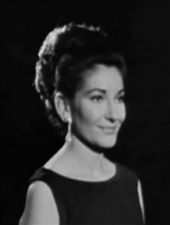
 The contemporary Greece (1974-2006)
The contemporary Greece (1974-2006)by Rudy Caparrini, Vincenzo Greco, Ninni Radicini preface by Antonio Ferrari, "Corriere della Sera" journalist, corresponding from Athens publishing house: Polistampa, 2007 * The book is in italian version only |
 The first day of January 2007 in Greece was inaugurated the year dedicated to Maria Callas. An initiative of remarkable historical and cultural meaning, in the thirtieth anniversary of her tragic disappearance: for those who have spent the years in which her voice and her presence on the stage have delighted the world and who instead has been able only to listen for the echo of her name, symbol, together with Greta Grace, being unobtainable star. Was not random what taken place few days before, when the greek premier Konstantinos Karamanlis has honoured the foreign leaders a series of 20 cd and dvd with the recordings of the concerts of the "biggest opera voice".
The first day of January 2007 in Greece was inaugurated the year dedicated to Maria Callas. An initiative of remarkable historical and cultural meaning, in the thirtieth anniversary of her tragic disappearance: for those who have spent the years in which her voice and her presence on the stage have delighted the world and who instead has been able only to listen for the echo of her name, symbol, together with Greta Grace, being unobtainable star. Was not random what taken place few days before, when the greek premier Konstantinos Karamanlis has honoured the foreign leaders a series of 20 cd and dvd with the recordings of the concerts of the "biggest opera voice".

 The contemporary Greece (1974-2006)
The contemporary Greece (1974-2006)by Rudy Caparrini, Vincenzo Greco, Ninni Radicini preface by Antonio Ferrari, "Corriere della Sera" journalist, corresponding from Athens publishing house: Polistampa, 2007 * The book is in italian version only |